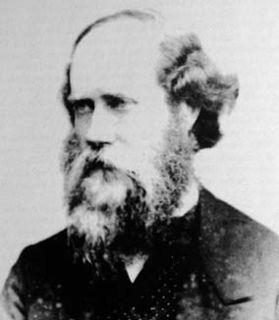A Quote by Jean Piaget
The child of three or four is saturated with adult rules. His universe is dominated by the idea that things are as they ought to be, that everyone's actions conform to laws that are both physical and moral - in a word, that there is a Universal Order.
Related Quotes
A child is an eager observer and is particularly attracted by the actions of the adults and wants to imitate them. In this regard an adult can have a kind of mission. He can be an inspiration for the child's actions, a kind of open book wherein a child can learn how to direct his own movements. But an adult, if he is to afford proper guidance, must always be calm and act slowly so that the child who is watching him can clearly see his actions in all their particulars.
If the world is an aggregate of relatively independent regions, then any assumption of universal laws is false and a demand for universal norms tyrannical: only brute force (or seductive deception) can then bend the different moralities so that they fit the prescriptions of a single ethical system. And indeed, the idea of universal laws of nature and society arose in connection with a life-and-death battle: the battle that gave Zeus the power over the Titans and all other gods and thus turned his laws into the laws of the universe.
The impossibility of separating the nomenclature of a science from the science itself, is owing to this, that every branch of physical science must consist of three things; the series of facts which are the objects of the science, the ideas which represent these facts, and the words by which these ideas are expressed. Like three impressions of the same seal, the word ought to produce the idea, and the idea to be a picture of the fact.
Even when laws have been written down, they ought not always to remain unaltered. As in other sciences, so in politics, it is impossible that all things should be precisely set down in writing; for enactments must be universal, but actions are concerned with particulars. Hence we infer that sometimes and in certain cases laws may be changed.
There are clear differences between child and adult artistic activity. While the child may be aware that he is doing things differently from others, he does not fully appreciate the rules and conventions of symbolic realms; his adventurousness holds little significance. In contrast, the adult artist is fully cognizant of the norms embraced by others; his willingness, his compulsion, to reject convention is purchased, at the very least, with full knowledge of what he is doing and often at considerable psychic cost to himself.
People take it for granted that the physical world is both ordered and intelligible. The underlying order in nature - the laws of physics - are simply accepted as given, as brute facts. Nobody asks where they came from; at least not in polite company. However, even the most atheistic scientist accepts as an act of faith that the universe is not absurd, that there is a rational basis to physical existence manifested as law-like order in nature that is at least partly comprehensible to us. So science can proceed only if the scientist adopts an essentially theological worldview.
Tell me it's never been done. Because the only real laws in this world-the only things we really know-are the two postulates of relativity, the three laws of Newton, the four laws of thermodynamics, and Maxwell's equation-no, scratch that, the only things we really know are Maxwell's equations, the three laws of Newton, the two postulates of relativity, and the periodic table. That's all we know that's true. All the rest are man's laws
We shall walk together on this path of life, for all things are a part of the universe, and are connected with each other to form one whole unity. This idea helps the mind of the child to become fixed, to stop wandering in an aimless quest for knowledge. He is satisfied, having found the universal centre of himself with all things.
To the enlightened man... whose consciousness embraces the universe, to him the universe becomes his 'body', while the physical body becomes the manifestation of the universal mind. His inner vision an expression of the highest reality, and his speech an expression of eternal truth and mantric power.




































